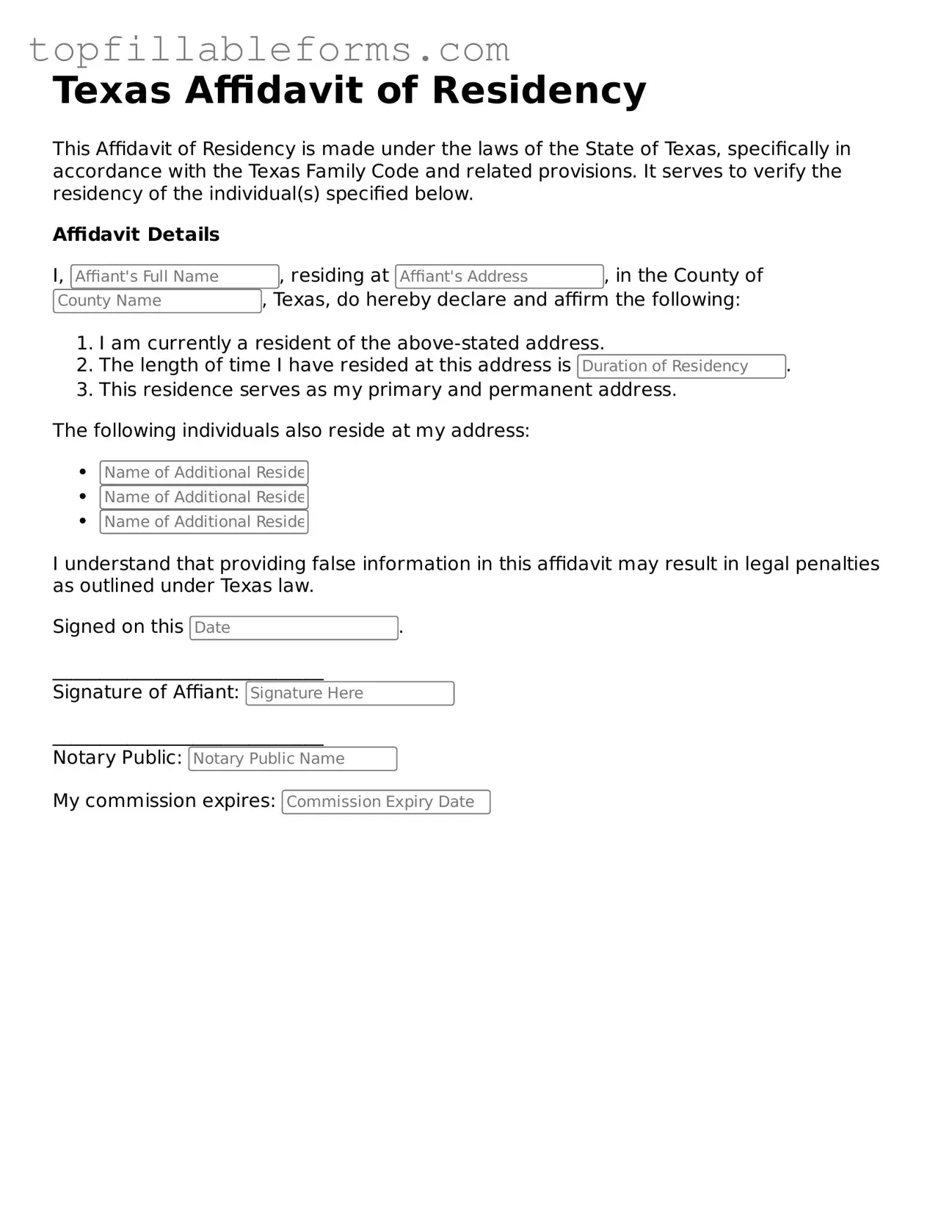Attorney-Verified Affidavit of Residency Template for Texas
The Texas Affidavit of Residency form is a legal document that individuals use to declare their residence in Texas for various purposes, such as enrolling in school or obtaining certain benefits. This affidavit serves as a sworn statement, affirming that the information provided is accurate and truthful. Understanding the requirements and implications of this form is essential for those navigating residency-related matters in Texas.
Open Affidavit of Residency Editor Here

Attorney-Verified Affidavit of Residency Template for Texas
Open Affidavit of Residency Editor Here
Finish the form now and be done
Finish your Affidavit of Residency online by editing, saving, and downloading fast.
Open Affidavit of Residency Editor Here
or
▼ PDF File
